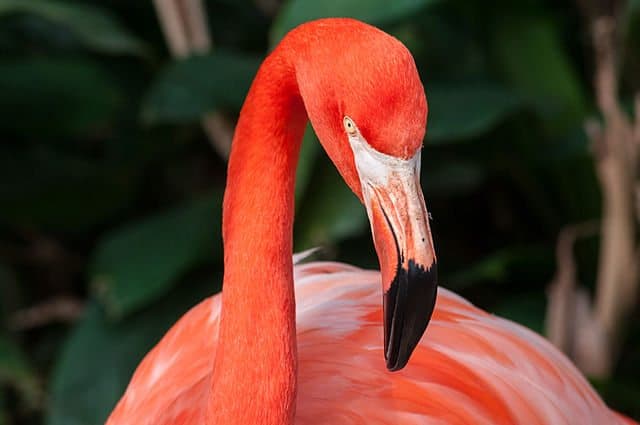How Img Border HTML Code Gave Way To CSS: A Simple Tutorial
Disclosure: Your support helps keep the site running! We earn a referral fee for some of the services we recommend on this page. Learn more
- Attribute of
- HTML Tags Guide To Adding Images To Your Web Documents
- What does
How Img Border HTML Code Gave Way To CSS: A Simple Tutorialdo? - Previously used to define a border on an image element. It has been deprecated and should no longer be used.
Contents
The Old Way to Add a Border to an Image
The border attribute was previously used to add a border to an <img> element.
<!-- Do not do this. This is feature deprecated and may not work in all browsers. --> <img src="/wp-content/uploads/flamingo.jpg" border="25"> 
This way of adding a border is deprecated in HTML5.
The Right Way to Add a Border to an Image
The right way to add a border to an image (or anything else) is to use CSS. The CSS specification provides three different border properties: border-width, border-style, and border-color.
.border { border-width: 25px; border-color: red; border-style: solid; } <img src="/wp-content/uploads/flamingo.jpg" class="border"> #border-1 .border { border-width: 25px; border-color: red; border-style: solid; } 

Border Styles
There are several options for border-style.
.small { max-width: 300px; margin: 0 15px 15px 0; } .border { border-width: 15px; border-color: red; } .dotted { border-style: dotted; } .dashed { border-style: dashed; } .solid { border-style: solid; } .double { border-style: double; } .groove { border-style: groove; } .ridge { border-style: ridge; } .inset { border-style: inset; } .outset { border-style: outset; } <img src="/wp-content/uploads/flamingo.jpg" class="small border dotted"> <img src="/wp-content/uploads/flamingo.jpg" class="small border dashed"> <img src="/wp-content/uploads/flamingo.jpg" class="small border solid"> <img src="/wp-content/uploads/flamingo.jpg" class="small border double"> <img src="/wp-content/uploads/flamingo.jpg" class="small border groove"> <img src="/wp-content/uploads/flamingo.jpg" class="small border ridge"> <img src="/wp-content/uploads/flamingo.jpg" class="small border inset"> <img src="/wp-content/uploads/flamingo.jpg" class="small border outset"> #border-2 .small { max-width: 300px; margin: 0 15px 15px 0; } #border-2 .border { border-width: 15px; border-color: red; } #border-2 .dotted { border-style: dotted; } #border-2 .dashed { border-style: dashed; } #border-2 .solid { border-style: solid; } #border-2 .double { border-style: double; } #border-2 .groove { border-style: groove; } #border-2 .ridge { border-style: ridge; } #border-2 .inset { border-style: inset; } #border-2 .outset { border-style: outset; } 















Mix and Match Border Styles
You can use different border styles for each side of an image.
.border { border-width: 15px; border-color: red; } .mixed { border-style: solid dashed dotted double; } <img src="/wp-content/uploads/flamingo.jpg" class="border mixed"> #border-3 .border { border-width: 15px; border-color: red; } #border-3 .mixed { border-style: solid dashed dotted double; } 

Border Shorthand
If you aren’t doing anything too particular or weird, you can combine the three different border rules into the single border property`.
.border { border: 15px solid red; } <img src="/wp-content/uploads/flamingo.jpg" class="border"> #border-4 .border { border: 15px solid red; } 

Border Placement and the Box Model
Borders appear inside the margins specified on an element, but outside the padding.
#green-box { background-color: green; margin: 0; padding: 0; } #border-padding-margin{ margin: 20px; border: 20px solid red; padding: 20px; background-color: yellow; } <div id="green-box"> <img src="/wp-content/uploads/flamingo.jpg" id="border-padding-margin"> </div> #border-box-demo #green-box { background-color: green; margin: 0; padding: 0; } #border-box-demo #border-padding-margin{ margin: 20px; border: 20px solid red; padding: 20px; background-color: yellow; } 

Values of the border Attribute
| Value Name | Notes |
|---|---|
| pixels | Defined width of the border, in pixels. |
All Attributes of img Element
| Attribute name | Values | Notes |
|---|---|---|
| height | Identifies the intrinsic height of an image file, in CSS pixels. | |
| srcset | list of sources | Defines multiple sizes of the same image, allowing the browser to select the appropriate image source. |
| align | right left | Was previously used to specify the alignment and placement of an image relative to the surrounding text. It has been deprecated and should not be used. |
| alt | text | Defines alternate text, which may be presented in place of the image. |
| border | pixels | Previously used to define a border on an image element. It has been deprecated and should no longer be used. |
| controls | Toggled media player controls when used in conjunction with the <code>dynsrc</code> attribute. Both attributes are now deprecated. | |
| dynsrc | ||
| hspace | Previously used to add horizontal space on both side of an image. It is now deprecated. | |
| ismap | Identifies an image as a server-side image map. When the containing anchor link is clicked, the coordinates of the mouse will be included in the request. | |
| longdesc | Defines a URL at which can be found more information about the image. It was written out of the HTML5 specification, but its status is not quite so clear as other deprecated features. | |
| loop | Previously used to specify the number of times a video should play, when used in conjunction with the dynsource attribute. Both attributes have been deprecated. | |
| lowsrc | Specified a smaller or lower-quality version of an image. | |
| name | Identified the image or provided additional information about it. Deprecated in HTML 4.0 in favor of other attributes. | |
| naturalsizeflag | This attribute does nothing. It was once used by a proprietary software system. | |
| nosave | Was intended to prevent users from downloading an image. Was never a part of the HTML specification, and not widely implemented. | |
| start | fileopen mouseover | |
| suppress | Used by the now-defunct Netscape browser to suppress the display of image prior to image download completion. | |
| usemap | Specifies a client-side image map to be used with the image. | |
| width | Indicates the intrinsic width of the image, in CSS pixels. | |
| src | Specifies the URL of an image to be displayed. |
